1949 Norton Manx
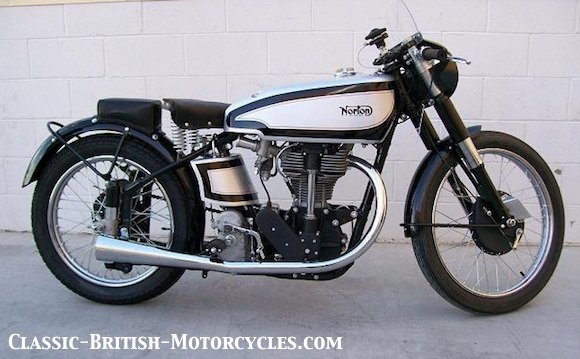
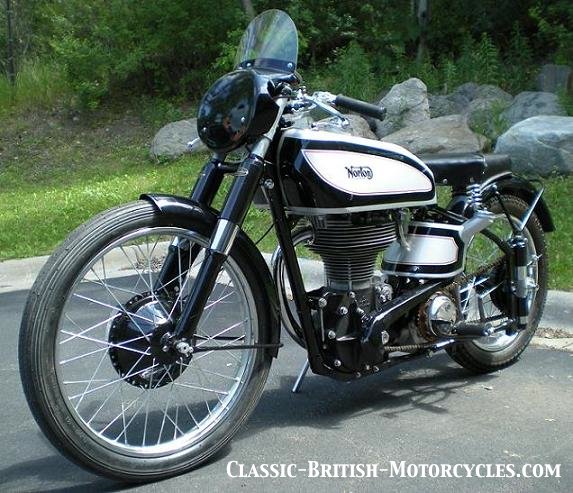
1949 NORTON MANX BACKGROUND
The Norton Manx was developed in 1937, in both SOHC and DOHC form, to compete in and win the Isle of Man TT. Before fully developed, World War II intervened, and production of the Manx was delayed until 1946. The Manx quickly gained a reputation for its speed and reliability, allowing it to dominate the motorcycle Grand Prix racing and the Isle of Man TT for decades.
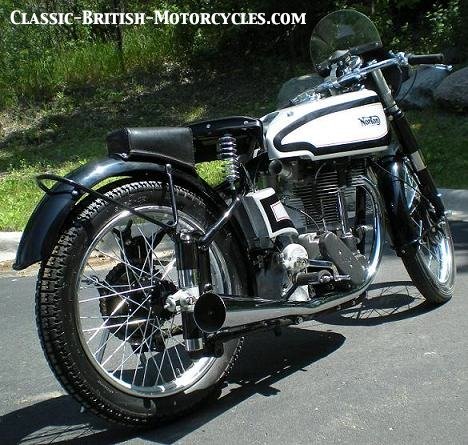
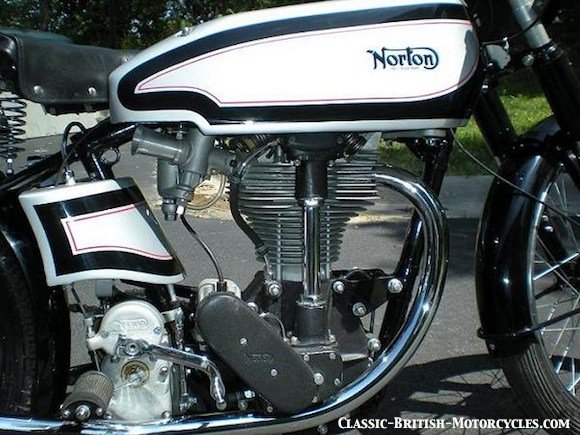
1949 NORTON MANX DESIGN
The Manx engine has an aluminum alloy cylinder block and head with a single overhead camshaft (SOHC) driven by a vertical shaft and bevel gears. They were hand assembled engines. The 1948 Norton Manx was the first to benefit from telescopic front forks and twin leading shoe (TLS) front brakes. 1949 was also the first year for the Norton Manx Grand Prix models, purpose-built for road racing.
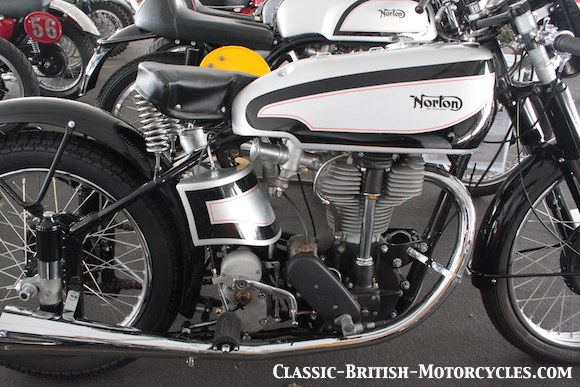
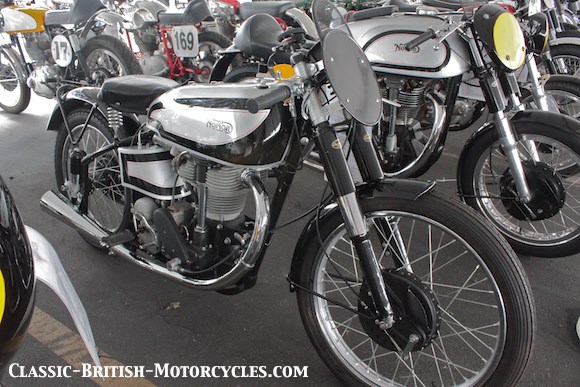
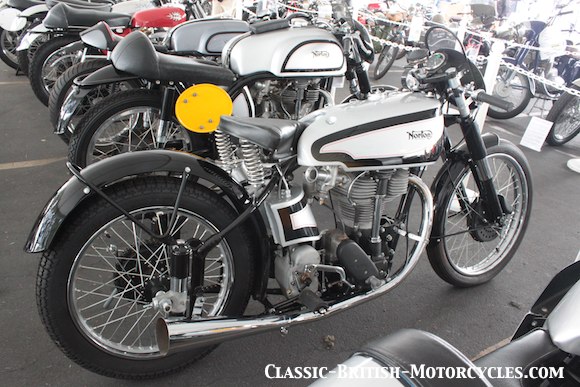
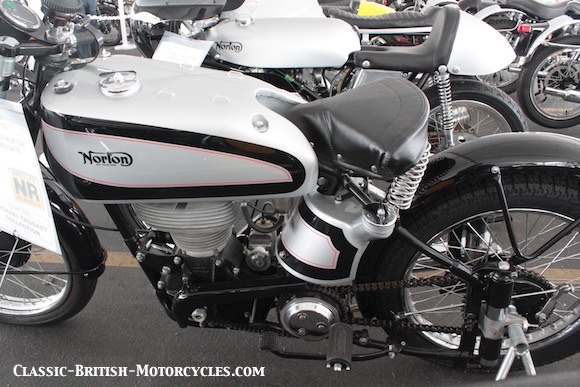

1949 Norton Manx SPECIFICATIONS
|
Engine type Displacement Bore & Stroke Compression Carburetor Ignition Engine Output Primary Drive Clutch Gearbox Final Drive Frame type Wheelbase Suspension, F Suspension, R Brake, F Brake, R Weight Top Speed |
500 MANX Air-cooled DOHC single 499cc 79.62mm X 100mm 8.6:1 Amal GP, 1-7/32″ Lucas magneto 47 bhp @ 6500 rpm Chain Multi-plate, wet 4-speed, R-foot shift Chain Full double cradle 56.0″ Telescopic, oil damped Plunger-type TLS 8″ drum SLS 7″ drum 310 lbs / 180 kg 130 mph / 210 kph |
350 MANX Air-cooled DOHC single 348cc 71mm X 88mm 9.0:1 Amal GP, 1-1/8″ Lucas magneto 35 bhp Chain Multi-plate, wet 4-speed, R-foot shift Chain Full double cradle 56.0″ Telescopic, oil damped Plunger-type TLS 8″ drum SLS 7″ drum 310 lbs / 180 kg 115 mph / 185 kph |

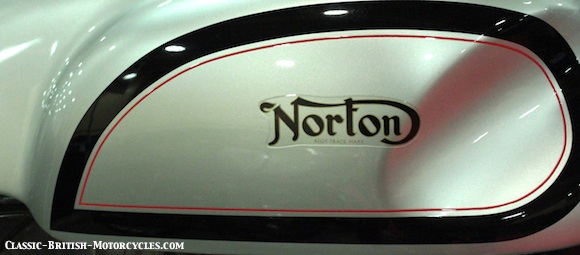

No Comment